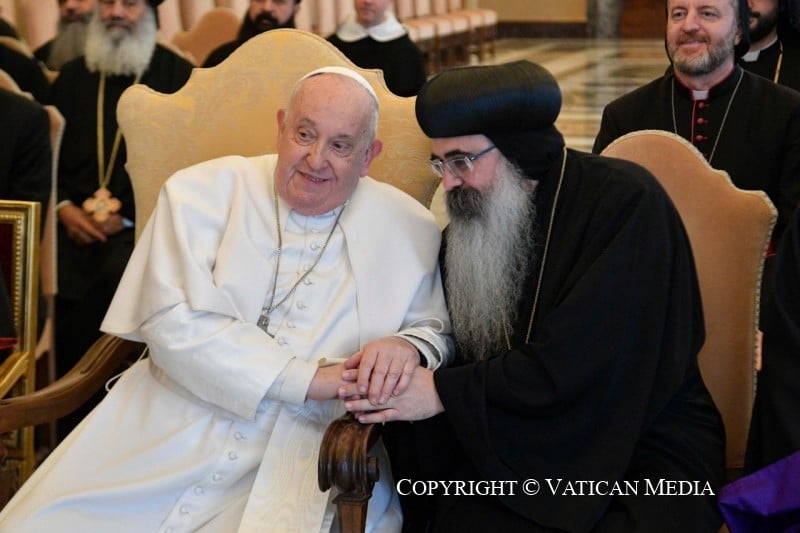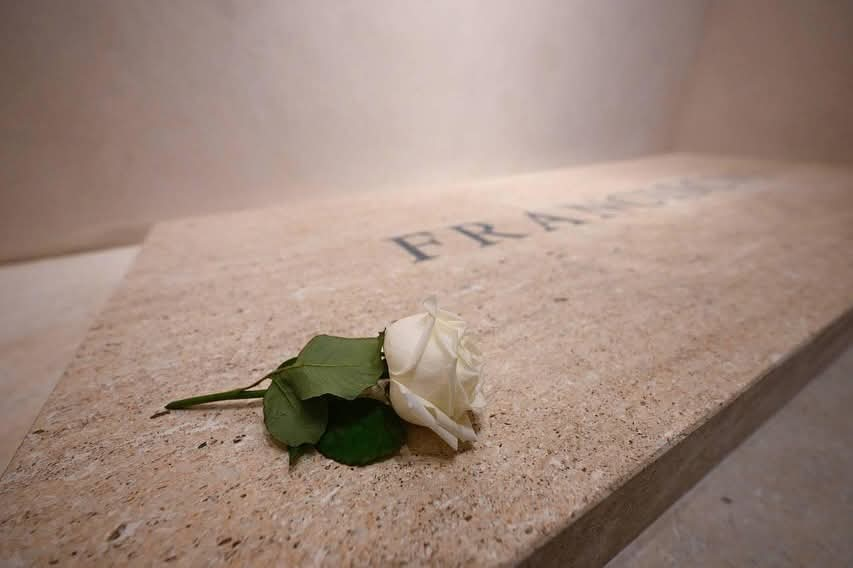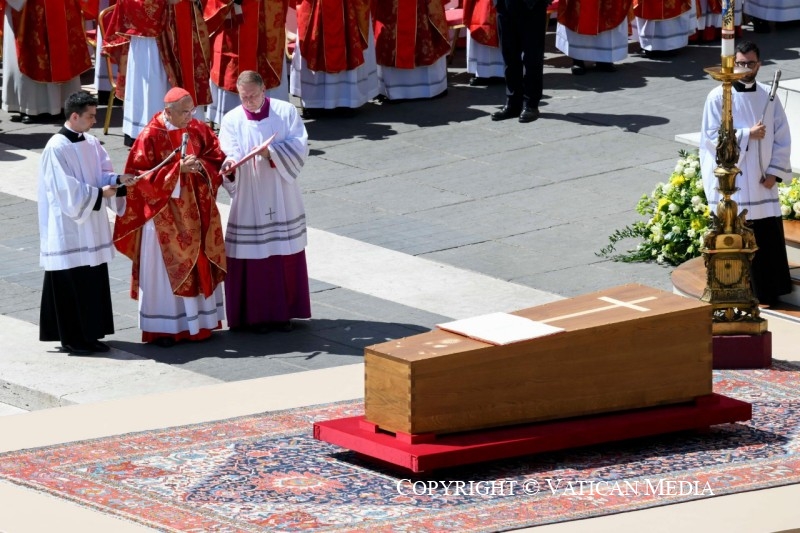Reaffirm the path towards a fuller unity through three dialogues: those of charity, truth and life
Joint international commission for theological dialogue between the Catholic Church and the Eastern Orthodox Churches

This Friday, January 26, 2024, in the Vatican Apostolic Palace, the day after the closing of the Week of Prayer for Christian Unity, the Holy Father Francis received in audience the members of the international mixed commission for dialogue between the Catholic Church and the Eastern Orthodox Churches and the participants in the annual study visit of young priests and monks of the Eastern Orthodox Churches.
Below, we publish the speech that the Pope addressed to those present during the meeting:
Holy Father’s speech
Dear Friends in Christ,
“May grace and peace be yours in abundance!” (1 Pet 1:2). With these words of the Apostle Peter, I offer you a warm welcome. I thank His Grace Kyrillos for his kind words and all of you for your presence and your resolve to journey together along the paths of unity, which are also the paths of peace. Sustained by the saints and martyrs who, united in heaven, accompany us, let us pray and work tirelessly in the service of communion and in countering the famine of peace spreading through so many parts of the earth, including some of the regions from which you come.
Today it is a double joy for me to welcome you, because on this, the twentieth anniversary of your Commission, you are joined by a delegation of young priests and monks from the Oriental Orthodox Churches. The presence of these young people inspires hope, and prayer guides our way! Through you, I would like to offer my cordial greetings to my venerable and dear Brothers, the Heads of the Oriental Orthodox Churches, some of whom honoured me by their visits last year: I think of His Holiness Tawadros II, His Holiness Baselios Marthoma Mathews III and His Holiness Aphrem.
These visits are important, for they allow the “dialogue of charity” to go hand in hand with the “dialogue of truth” that your Commission pursues. From the earliest days of the Church, such visits, together with the exchange of letters, delegations and gifts, have been a sign and means of communion, as your Commission noted in its document, The Exercise of Communion in the Life of the Early Church and its Implications for our Search for Communion. These gestures, grounded in recognition of the one Baptism, are not merely acts of courtesy or diplomacy, but have an ecclesial import and can be considered true loci theologici. As Saint John Paul II stated in his Encyclical Ut Unum Sint, “acknowledging our brotherhood… is something much more than an act of ecumenical courtesy; it constitutes a basic ecclesiological statement” (No. 42).
In this regard, I am convinced that the “dialogue of charity” should be understood not simply as a preparation for the “dialogue of truth”, but as itself a “theology in action”, capable of opening new horizons on the journey of our Churches. At a time when, thank God, relations between us are deepening, I believe that it is good to think back on the development of those relations in the light of a “theology of dialogue in charity”.
Dear friends, your Commission held its first meeting in Cairo, in January 2004. Since then it has met almost every year and adopted three important documents dealing with ecclesiological themes, all reflecting the richness of the Christian traditions you represent: Coptic, Syriac, Armenian, Malankara, Ethiopian, Eritrean and Latin. Your dialogue has reflected that great richness in its approach to the issue of unity in diversity, as witnessed by the first document you produced. There we read that, “putting down roots in a variety of cultural, social and human terrains, the Church takes on different theological expressions of the same faith and different appearances in ecclesiastical disciplines, liturgical rites and spiritual heritages in each part of the world. This richness shows all the more resplendently the catholicity of the one Church” (Nature, Constitution and Mission of the Church, 2009, No. 20).
Another feature of your dialogue has been its constant pastoral concern, as illustrated by the latest document on The Sacraments in the Life of the Church. In this regard, the recent initiative of organizing yearly and reciprocal study visits for young priests and monks is worthy of continuing. Four delegations of young Oriental Orthodox priests and monks have already come to Rome to learn more about the Catholic Church at the invitation of the Dicastery for the Promotion of Christian Unity, which I thank for this. Likewise, a delegation of young Catholic priests travelled to Etchmiadzin last year at the invitation of the Armenian Apostolic Church. The involvement of young people in bringing our Churches closer together is a sign of the Spirit, who rejuvenates the Church in harmony, inspires paths of communion, and grants wisdom to the young and prophecy to the old (cf. Joel 2:28). May this “dialogue of life” continue under the banner of the Spirit! And let us not forget that it is the Holy Spirit who creates harmony.
The dialogue of charity, the dialogue of truth and the dialogue of life: three inseparable ways to advance on the ecumenical journey that your Commission has encouraged over these past twenty years. Twenty years: that is the time of youth, the age when decisive choices mature. May this anniversary be a time to praise God for the journey travelled thus far, and to remember with gratitude all those who have contributed to it by their theological expertise and prayer. May it renew the conviction that full communion between our Churches is not only possible, but urgent and necessary “so that the world may believe” (Jn 17:21).
Now, since the current phase of your dialogue concerns the Virgin Mary in the teaching and life of the Church, I propose that you entrust your work to her, the holy Mother of God and our Mother. Let us invoke her together, in the words of an ancient and splendid prayer that we share, which is called in Latin Sub Tuum Praesidium and can be found in your booklets. Let us pray to the Mother of God:
We fly to your protection, Holy Mother of God.
Scorn not our petitions in the hour of need.
O glorious and blessed Virgin,
deliver us always from every peril. Amen.
Related

Cardinal Parolin at the Novendalia Mass: “Mercy leads us to the heart of faith”
Exaudi Staff
27 April, 2025
8 min

Pope Francis’ Tomb in Santa Maria Maggiore
Exaudi Staff
27 April, 2025
1 min

Mercy and the joy of the Gospel are two key concepts of Pope Francis
Exaudi Staff
26 April, 2025
9 min

Thousands of faithful bid farewell to Pope Francis in St. Peter’s Square
Exaudi Staff
26 April, 2025
2 min
 (EN)
(EN)
 (ES)
(ES)
 (IT)
(IT)

